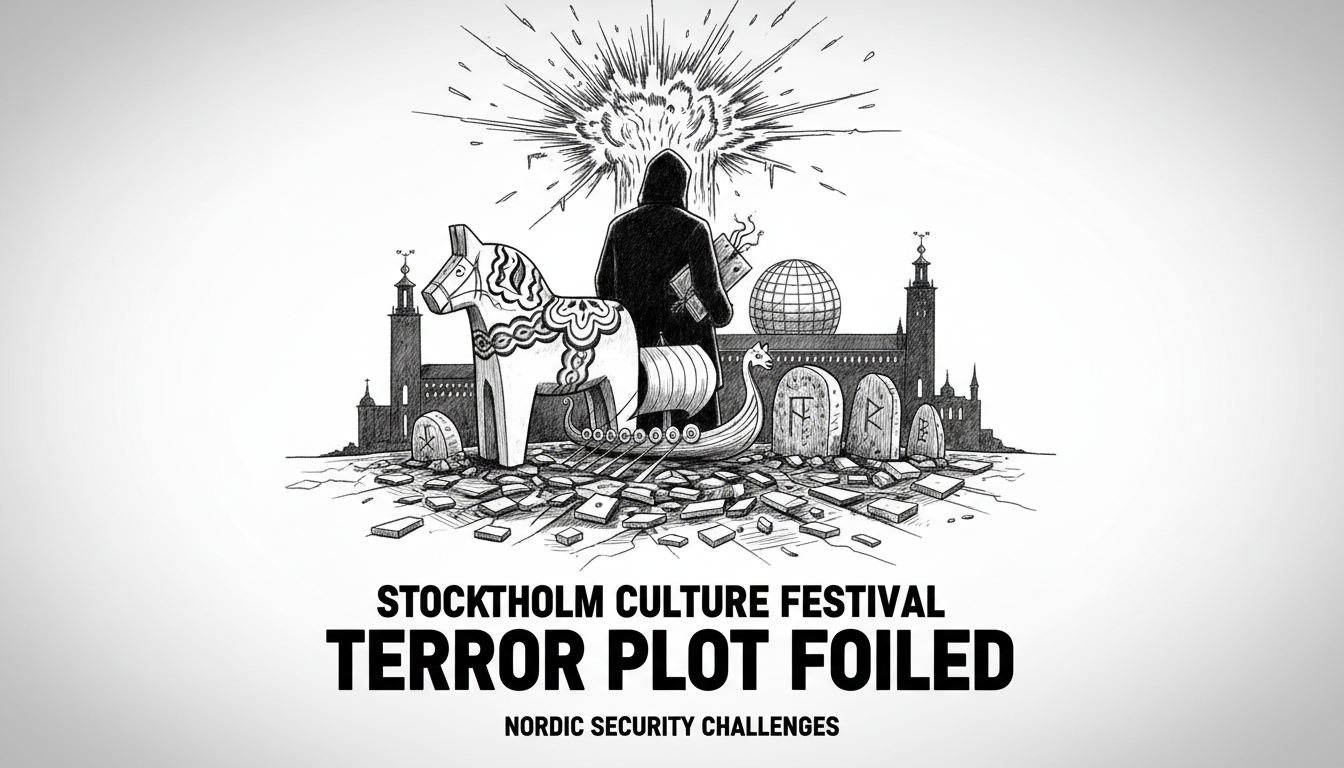An 18-year-old man faces charges for preparing terrorist crimes in Stockholm. Authorities allege he manufactured explosives and conducted reconnaissance of his intended target. Police intervention prevented the planned attack from occurring.
Torun Boucher, Stockholm's cultural affairs councilor, expressed relief about her previous lack of knowledge regarding the terror plans. She acknowledged understanding in hindsight why police maintained heightened alertness during early summer events. The Green Party politician described the security preparations as unusually intensive this year.
Boucher revealed that police communication reached unprecedented levels before the Culture Festival. Both local and central police units engaged in dense dialogue with event organizers. Security measures were noticeably escalated compared to previous years, she confirmed.
Despite the security threat, Boucher emphasized the continued importance of maintaining open cultural events. She framed large public gatherings as essential democratic expressions that must continue despite security challenges. The councilor's statements highlight the delicate balance between security concerns and cultural accessibility in modern urban environments.
This case reflects broader European security patterns where cultural events increasingly become terrorism targets. Similar threats have emerged across Scandinavia in recent years, prompting revised security protocols at major public gatherings. The Stockholm incident demonstrates how Nordic countries confront global security challenges while preserving their open societies.
Sweden's approach to terrorism prevention combines intelligence gathering with visible police presence. The country has developed specialized counter-terrorism units since upgrading its terror threat level in 2016. These units maintain constant coordination with event organizers and municipal authorities.
The timing of this planned attack during summer festival season raises questions about seasonal security patterns. Major European cities often see increased security operations during peak tourism periods. Stockholm's experience shows how cities must constantly adapt their security measures to evolving threats.
International observers will monitor how this case influences Sweden's counter-terrorism policies. The nation faces particular challenges balancing its open society values with necessary security precautions. This incident may prompt renewed debate about surveillance laws and police resources.
For Stockholm residents and visitors, the foiled plot represents both a security success and a sobering reminder. It demonstrates effective police work while underscoring persistent threats to public events. The city's ability to maintain its cultural calendar despite these challenges speaks to institutional resilience.
Future cultural events in Stockholm will likely incorporate lessons from this security operation. Organizers may implement additional screening measures or adjust venue layouts. The continued commitment to public festivals indicates determination not to let security concerns override cultural life.

